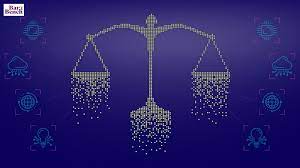IMF Warns: Artificial Intelligence Set to Impact 40% of Jobs, Exacerbating Inequality

In a recent statement, the International Monetary Fund (IMF) has highlighted the imminent challenges posed by the increasing integration of Artificial Intelligence (AI) into the workforce. This article explores the key findings of the IMF’s analysis, delving into the projected impact on 40% of jobs and the potential exacerbation of existing inequalities. By examining the nuances of this technological shift, the article aims to provide insights into the multifaceted consequences for the global job market and societal disparities.
1. IMF’s Cautionary Note: A Deep Dive into the Analysis
The article commences by outlining the IMF’s cautionary stance on the widespread adoption of AI in the job market. A detailed analysis is provided, shedding light on the organization’s insights into the potential repercussions on employment and economic dynamics.
https://www.myminifactory.com/stories/sap-c-sacp-2316-exam-question-certs4sale-659a90994dc29
2. Unpacking the Numbers: The 40% Job Impact
Delving into the heart of the matter, this section breaks down the statistics that form the crux of the IMF’s warning. By examining how AI is anticipated to impact 40% of jobs, readers gain a clearer understanding of the scale and scope of the challenges ahead.
3. Inequality on the Horizon: IMF’s Concerns
The article explores the IMF’s concerns regarding the exacerbation of inequality as a direct consequence of AI integration. From disparities in access to opportunities to potential wage gaps, readers are provided with insights into the societal challenges that may intensify with the widespread implementation of AI.
https://www.myminifactory.com/story/edit/dell-emc-d-un-dy-23-exam-dumps-pdf-question-659a906ea3c06
4. Job Sectors in Focus: Identifying Vulnerabilities
By examining specific job sectors, the article identifies areas that are particularly vulnerable to the impact of AI. Insights into which professions may face substantial changes or reductions in demand contribute to a nuanced understanding of the varied effects across different industries.
5. Mitigating the Impact: Strategies for Equitable Transition
Recognizing the need for proactive measures, this section explores potential strategies to mitigate the negative impact of AI on jobs and inequality. From upskilling initiatives to policy considerations, readers gain insights into how stakeholders can work towards a more equitable transition in the face of technological advancements.
https://www.myminifactory.com/stories/oracle-1z0-829-dumps-questions-answers-659a901bc3f3e
6. Global Perspectives: Varied Impacts on Different Economies
The article concludes by considering the global implications of AI-induced job changes and inequality. By examining how different economies may experience the impact differently, readers gain insights into the varied challenges and opportunities that lie ahead on an international scale.
In summary, this article provides an in-depth exploration of the IMF’s warning about the potential impact of AI on 40% of jobs and its potential to worsen inequality. By analyzing the key findings, identifying vulnerable job sectors, and proposing strategies for equitable transitions, the article aims to contribute to a comprehensive understanding of the multifaceted challenges presented by the integration of AI into the global workforce.





